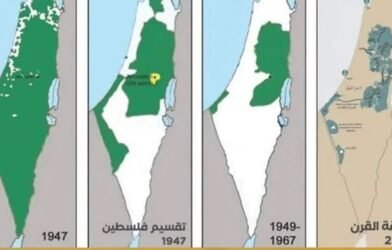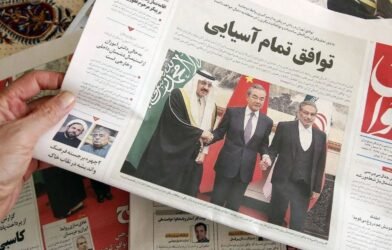Subtotal $0.00
It is not possible for Arab and Islamic civilization to be at the tail end of human civilization at all levels these days, so that there is backwardness in all fields and then children's literature is asked to be distinguished as if it belongs to another world. This kind of mental effort, namely children's literature, is a child of its environment and must be imbued with some of its characteristics, knowing that all fields of life and civilization are connected to each other in a way that it is impossible to progress in one field without progress in other fields if this progress is to be effective and lasting, otherwise it too will soon disappear.
I can say that Arab children's literature, despite its age, has not yet passed the stage of childhood. The issues that it went through in the 1940s and 1950s are still present today, whether at the level of writers, authors, resources, or even the general climate. There are issues related to the writer's capabilities, qualifications and the quality of his production, issues related to the production, printing and distribution of the book, issues related to the poor material capabilities of the recipient and the absence of a culture of research and reading, and issues related to the general environment, such as the low level of expressive freedom, the absence of public libraries, and the spread of cultural illiteracy in Arab societies.
It is interesting to note that children's literature in Europe began in the sixth or seventeenth century, while in the Arab world it appeared in the nineteenth century, two centuries apart, and I do not believe that after these long years we have succeeded in narrowing the gap between the two literatures.
You have painted a bleak picture of Arab children's literature. Does this mean that this type of literature will never reach the international level?
Although some Arab writers have been able to achieve limited individual breakthroughs in this field, including Mr. Abdul Tawab Youssef with his book The Life of Muhammad, the overall picture does not look promising at all, as the gap, in my view, between us and the West is too large to be bridged by individual efforts.
As I mentioned earlier, the issue is not limited to children's literature, as if everything else is fine. There must be a real comprehensive change in the structure of Arab societies and the Arab reality in general, and then we will find Arab children's literature automatically ascending to the international level, and I am certain that it will surpass other literatures, because of the Arab-Islamic culture and its ability to positively influence the human psyche.
In any case, we should not stand by and wait for things to fix themselves. Rather, it is the duty of all those working in this field to exert their utmost efforts to develop their performance so that Arab culture does not descend to lower levels than it is now, and to fill some of the gaps that we find. Perhaps one of the most important tools for developing performance in this field is to familiarize oneself with the experiences of advanced nations, and the Internet is a wide-open portal in this field, in addition to participating in international conferences, exhibitions, and events related to children's literature, for those who have the opportunity to do so.
It is very important that the development of children's literature and culture in general is a national concern in which all segments of society participate, especially those with decision-making and money. They allocate literary competitions and prizes to encourage writing in this field, and we have already begun to see signs of this, and establish public and private publishing organizations that adopt the output of writers in a fair manner, and market books at prices commensurate with the average income of Arab citizens.
Writers must also be supported morally, by publicizing and celebrating them and their work, and financially, by allocating partial or full time grants and scholarships for them. Then work to establish scientific research departments and chairs for this type of literature in universities, and hold conferences and seminars that discuss children's affairs in general and literature in particular, bringing together all those concerned with children's education and culture, including educators, writers, artists, librarians, sharia scholars, psychologists, and government and private organizations.
All these and many other measures, such as the establishment of satellite stations specialized in children and the development of educational curricula in primary and secondary education, can push children's literature forward as one of the building blocks of the comprehensive civilizational renaissance project, without which Arab children's literature will remain in a cycle of experimentation based on individual efforts forever.
There seems to be a dialectical relationship between children's literature on the one hand, and education on the other. How do you view this issue?
This is true, and perhaps the origin of this confusion stems from the use of some literary texts in textbooks, and the failure to realize the main purpose of literature in general, as literature in general is intended primarily for entertainment, although it often carries lofty values and contents. On the other hand, educational stories are mainly written to circumvent, if I may say so, the student's feeling of boredom with scientific texts and to bring the idea of the lesson closer to his mind. The emergence and development of children's literature also has some role in this confusion. In many literatures, the emergence of children's literature is due to two main sources and educational texts, and there is another source that is sometimes no less important than the other two, namely sermon stories, and all these genres differ from children's literature in its artistic concept, and therefore we see many writers in our Arab world who cannot distinguish between the characteristics of children's literature and the characteristics of folklore They write popular literature that may carry destructive values for the child, and it is absolutely necessary that this work, i.e. writing children's literature, should only be practiced by those who are familiar with literary writing in advance so that their work is not like the work of many educators who wrote texts for children and came out no different from the pattern of their textbooks. This is a disservice to one of the most important fruits of children's literature, which is to entertain the child with something useful and accustom him to self-reading. This reminds me of what used to be called the system of jurists, which uses the same lines of poetry used by poets, but this system is far from being called poetry, due to the absence of emotion and imagination in it.
However, I do not oppose, but rather encourage the use of children's literature in the field of developing students' linguistic abilities and promoting positive values in themselves, which is beneficial for the child and for culture in general.
The term Islamic literature is commonly used and has become a term that has institutions and rallies around it, is there an Islamic literature for children in your opinion?
Literature is a facet of culture and civilization, and these, in turn, depend in their emergence and development on an intellectual base, and thus their productions are characterized by their idea, just as communism marked its literature with its label, Islam spreads in the cells and sap of various aspects of civilization and is therefore called the Islamic civilization, so yes, there is and should be an Islamic literature, although it is not what is hoped for in terms of quality and quantity. Although it is less than hoped for in terms of quality and quantity, there are many commonalities between children's literature in all cultures and civilizations because they generally work to instill lofty values and morals that humans recognize with their common sense, wherever they are, such as honesty, cooperation, concern for the weak, parental righteousness, humility and many others.
Does this mean you are not opposed to translating foreign children's literature into Arabic?
I think this is a very sensitive topic, as translation is a double-edged sword, as they say. On the one hand, it expands the child's knowledge of the cultures of other nations and benefits from the distinctive productions of non-Arab writers, and some foreign books cannot be produced in the Arab world in terms of the high scientific and artistic level, due to lack of experience and capabilities. On the other hand, there are many risks of translating Arabic children's literature, the most important of which is that it is the product of cultures that may not always agree with our Arab-Islamic culture, and may even contradict it and promote dangerous concepts, especially in the field of beliefs and the relationship with the universe and the opposite sex, so care must be taken when choosing the stories selected for translation. Over-translation also eliminates opportunities for Arab writers to publish their works that are born of our culture and leads to the dwindling or even extinction of these writers, thus losing our individuality, and the child becomes a clone of the Western or Japanese child.
Let's talk about the impact of the information boom, since we have touched on the topic of being influenced by other cultures, there is a lot of talk about the extinction of the book and its replacement by other new cultural tools, how do you view this topic?
If the development of human civilization leads to the extinction of the book and its replacement by another format, so be it. I believe that we should not be preoccupied with the format as much as we are preoccupied with the content. We must focus on the artistic and evaluative content of children's literature, whether on the Internet, satellite TV, or other new formats, and we as writers, producers, and adult educators must have the ability to adapt to the new formats and not insist on returning children to expired tools, if there are cultural tools as such, in order to keep the cord of communication between us and our children. It is not an impossible task, but it is not easy either, although I believe that the book will not lose its place, at least not in the foreseeable future.
Wouldn't it have been better, perhaps, to limit yourself to one literary genre, such as story, poetry, or novel, instead of this bifurcation?
The truth is that I consider myself to be going through an experimental phase in which I am exploring my abilities and skills, and I am sure that things will tend to further specialize in the future, God willing, perhaps in the field of children's fiction in particular.
You have significant experience in writing for adults, especially in the field of short stories, why this sharp turn towards children's literature?
I consider myself a Muslim who is committed to the teachings and inspiration of Islam, and I have an obligation to spread Islamic culture and the Islamic way of life, because I firmly believe that it is the best and that popularizing and spreading it is both a legitimate and humanitarian task.
Since my beginnings as a high school student, I directed the sails of my literary production towards the winds of committed literature. I initially turned to writing poetry, but I found that its audience is less numerous than the audience for prose, so I turned to the short story, and I realized that literature, except what is related to television screens, is an elitist consumption, and I want to reach the largest possible segment, in the meantime I had written a few works for children, and they were well received by publishers, children and their parents. I became more convinced of the importance of addressing this category of society because it is the future, so I started reading various children's literature and studies in this field, and I wrote poetry for them (I have an unprinted diwan for children), and I wrote the novel and the story of all kinds, and my busyness led to the lack of sufficient time and attention to adult literature, so I stopped writing for adults, and I consider this a kind of march towards specialization, which you asked me to do earlier.
An article appeared in the Jordanian newspaper Sabeel a little while ago about your production of a 2D animated movie titled "Mawlana Abu Al Ahmal", can you tell us about your experience in the field of television production and especially about this movie?
In fact, my work in television production comes in the same context that I mentioned earlier, which is my commitment towards spreading Islamic culture and lifestyle, and the small screen has become the main source of education for the Arab public, as the current popular culture in Arab societies is a visual culture. I have made several attempts in this field, but they have not been successful, so it may not be useful to mention them in detail. The only attempt that turned into a full-fledged work is the film Abu al-Ahmal, but it has not yet been commercialized due to the difficulty of that, so it is also an attempt that cannot be called a full-fledged work.
The movie deals with the topic of exposing the practices of charlatans and their tricks on simple people, and emphasizes that the best way to fight this phenomenon is to spread science and knowledge among people. Despite the seriousness of the subject matter, the movie deals with it in a humorous way in a story full of pranks and adventures that appeal to young people.
It is said that writers see the world with a romantic eye, magnifying the negatives of reality and drowning in dreams, what is your comment?
In this context, writers and writers are like barometers, or seismographs, and they are the ones who create the dream, and without dreams, achievements and successes in this life are not possible, so the presence of writers and writers is a civilizational and social necessity, although I acknowledge that they are not infallible prophets.
Can you tell us about your latest work, and is there anything new on the genre front?
In fact, there are many works that are about to appear, most of them will be published by Dar al-Maktabi in Damascus, and I think you will soon see them at international book fairs, and some of them are really distinguished in terms of genre.











